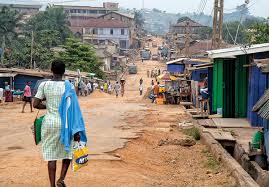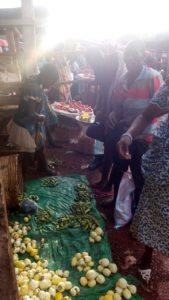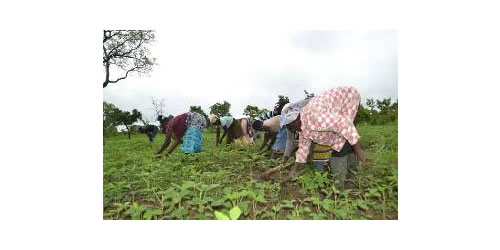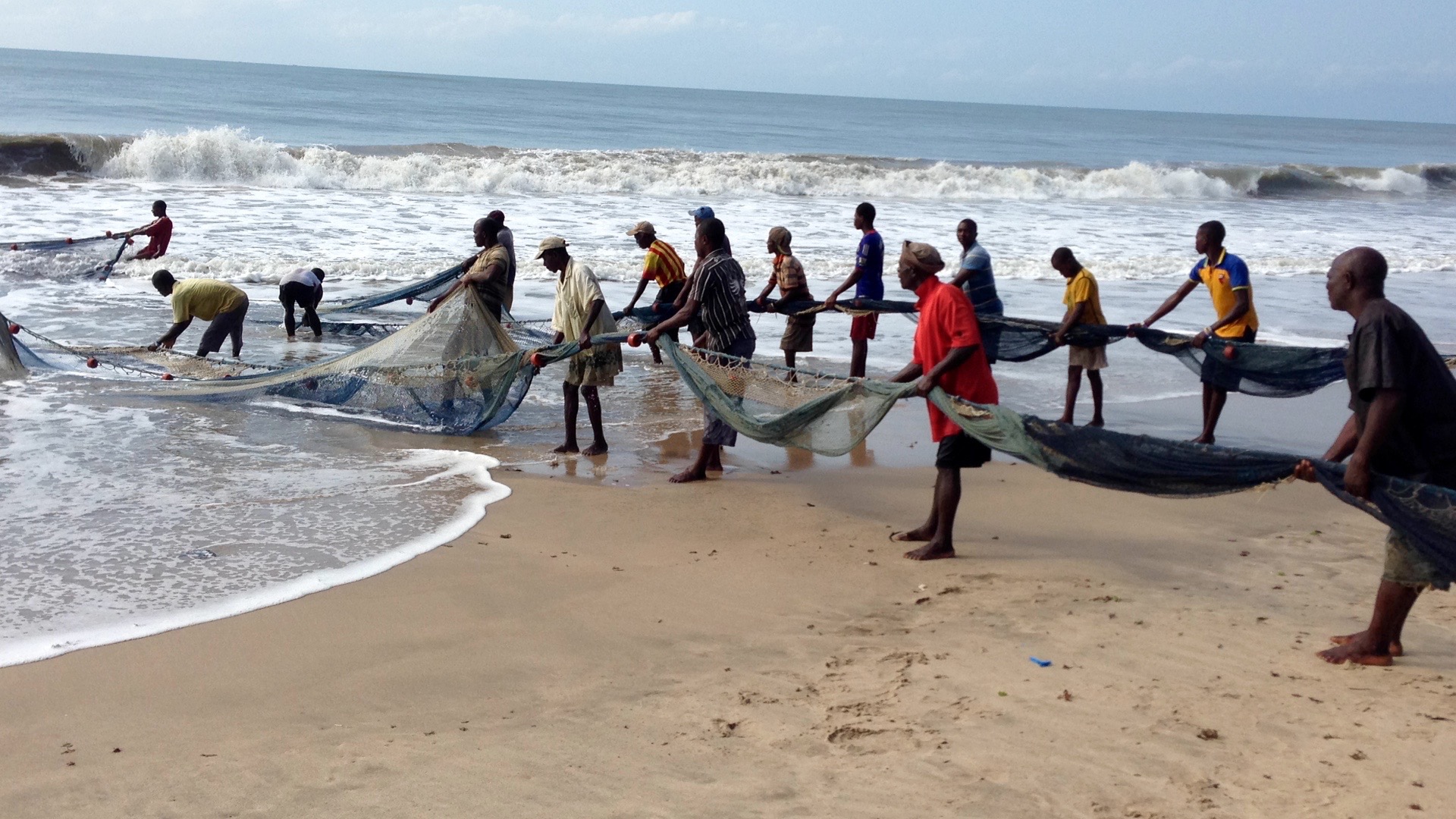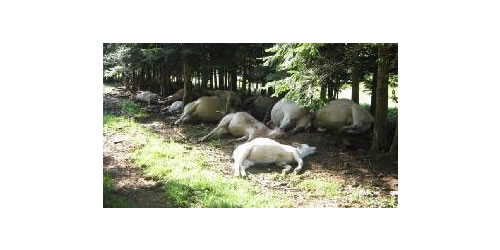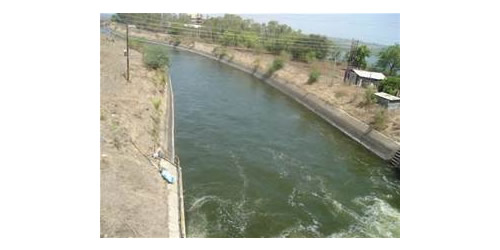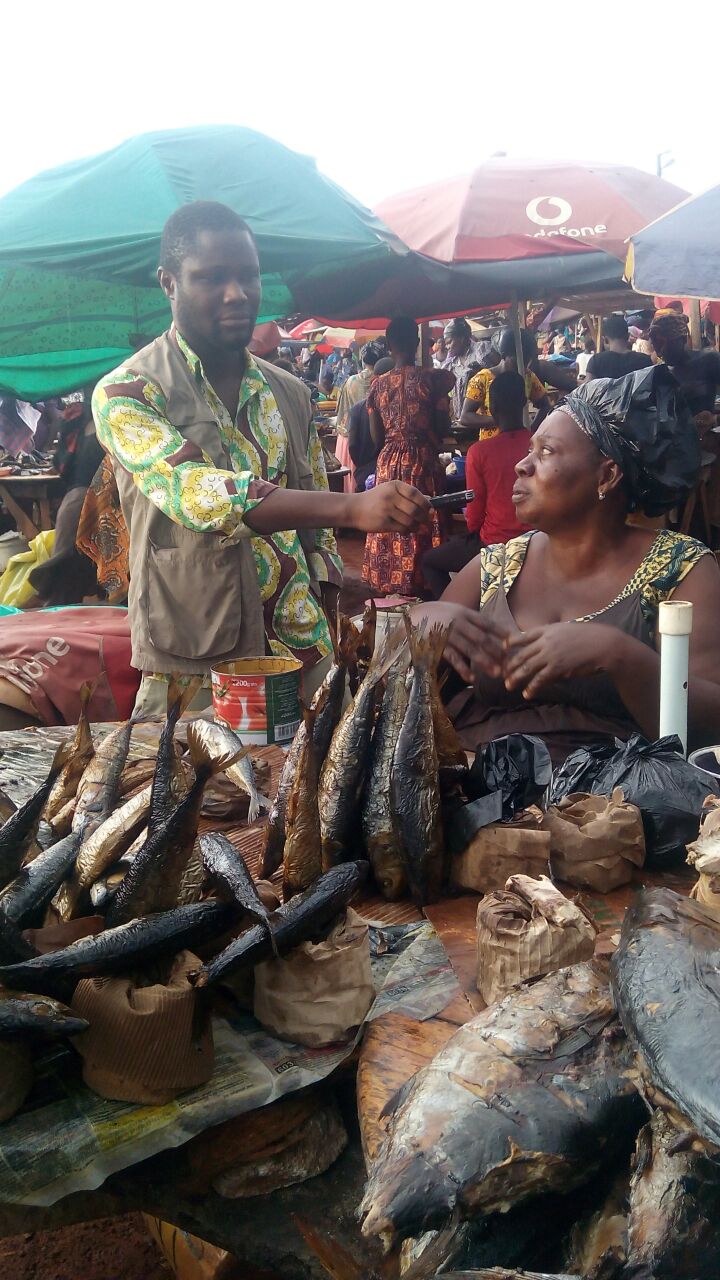
Rite FM Feature: Agriculture And Our Markets
By Catherine Ahiador:
BACKGROUND:
In as much as the agric sector continues to be revered as the backbone of Ghana’s economy, one would have thought that much priority would go into its sustenance, in this case ‘pampering’ the farming communities which fill the nation’s food basket. This should be in the form of good infrastructural provisions such as good road networks to facilitate the movement of foodstuffs from the farming communities as well as the markets.
Rite FM visited a few communities in the Upper Manya Krobo district of the Eastern region to acces a few of such farming communities what challenges confront them.
A LOOK AT BISA:
Bisa is a farming community in the Upper Manya Krobo district of the Eastern region. Indigenes of this small community may not be able to tell exactly when but decades ago; it hoisted the unenviable flag of hosting one of the most vibrant markets in the Eastern region. Though the people here can’t tell exactly when ago this happened, they sure believed that this was somewhere in the 1960s.
Traders from far and near flocked in to this market center which undoubtedly created an economic hub out of Bisa and its mother district of Upper Manya Krobo, its small size notwithstanding.
However, this enviable tale of Bisa could not stand forever. It was soon to lose this status to its bigger and neighbouring sister town, Asesewa.
The story of Asesewa establishing itself as the new economic hub of the Upper Manya Krobo district stemmed from its sprawling market that grew in size. This was as a result of the construction of the Koforidua Asesewa road. The Asesewa market took over when a new road leading into the town from the regional capital was constructed.
The construction of the road diverted a lot of business activities from Koforidua and other towns, this time not to Bisa but Asesewa. Bisa soon lost its market status as the market suffered terrible drop in patronage.
The result is that the once economically vibrant Bisa community is now a pale shadow of itself; the fact that it’s a farming community doing little to help. This is due to the fact that all of their farm produce would have to leave Bisa to the Asesewa market.
To crown it all, its road network is terrible to and from the town. Also, infrastructure in terms of domestic structures is in a terribly state, so bad that it’s difficult to believe that it was once the home of the biggest market in the Eastern region. The only smile on the face of Bisa and its people is the electricity supply which parts of the community enjoy.
Access to healthcare is another challenge facing Bisa. This is due to the fact that there is no ready accommodation for doctors and their healthcare assistants. Nene Tetteh Kwasi contends that his people always had to provide their own incentives to the healthcare providers in order to receive health care.
WHAT THE PEOPLE OF BISA HAVE TO SAY:
Francis Tetteh Kwasi is the ‘Dade Matse’ (traditional leader) of Bisa Yiti. He admits that Bisa is an old village that is facing near collapse due to the fact that its people are impoverished. ‘The market used to be here but due to poverty it’s been transferred to Asesewa but we want it to return here. Unfortunately, our roads are mercilessly in bad shapes,’ Francis Tetteh lamented.
The Dadematse also sympathized with the farmers in the community whom he described as the worst affected as transportation of their stuffs to the markets is a herculean task.
According to him, Bisa lacked portable drinking water, adding that the only source of water is a borehole which the whole community depends on. ‘Whenever it gets faulty, we all have to go all the way to Asesewa in order to access drinking water.’
Teachers are also not able to stay in this town because they do not get good places to stay and teach the children. The lack of infrastructure is not allowing teachers, doctors and other officials who will help the growth of the community to stay and live in the community for long.
Joseph Fiagbor Teye is also the Odikuro of the Bisa community and also a mixed crop farmer. He cultivates cassava, pepper and tomatoes. He was not happy that only parts of the Bisa town have access electricity supply. He was also particularly worried about the poor road network of the community.
Hear him; “our forefathers who first moved here, I was told by my grandfather, settled here in 1930. It was also where the Portuguese used to buy cocoa from. Now however, it would be very difficult for anyone to believe that this town used to be the same place where the Portuguese used to settle and trade.’
Mr. Teye was also not particularly happy that though their Member of Parliament, honourable Jeff Tetteh Kavienu had been severally consulted on the way forward for the community, he has done very little in this regard citing the non-availability of funds as an excuse.
Queenmother of Bisa, Alimo Mercy Tetteh-Kwah also bemoans the lack of good health care where in most cases, the lives of the sick are endangered when during moments of emergencies, they have to be rushed to hospitals in surrounding towns. She was particularly worried about the situations of pregnant women who during moments of labour had to be rushed to nearby hospitals for delivery.
Meanwhile, at Sawa, indications show that government is bringing rural electrification to the people Excited by this promise, the community members have mobilized themselves to clear the land where the electricity poles will be erected. But even as they revel in the promise, they seek to explore the power of their thumb as Ghana marches towards its 2016 general elections in November. The clarion call, “no light, no vote… no road network, no vote… no water, no vote’ reverberates through the community. That they believe will serve as a wake-up call to the politicians that in spite of their state, they still wield a little power nevertheless.
It’s a sad spectacle that a farming community where men, the youth as well as women and even the aged find themselves actively engaged in farming are bedeviled by these challenges. The question is will the leaders listen to them this time? Will the assembly and authorities in charge ever take a step towards salvaging their plights.
Tetteh Richard is a farmer who also takes joy in schooling. He echoes the cry he and his colleagues in the Bisa community face. He tells Rite FM that the biggest problem facing them is transportation of their farm produce, such as watermelons from their farms to the markets due to their poor road networks. This he explains results in their produce going bad sometimes. According to him, his father uses the little money he gets from the farm to support his schooling.
THE STATE OF THE MARKETS AND WHAT THE TRADERS ARE SAYING:
But it isn’t all about the farming community of Bisa. The markets also have their fair share of the difficulties. Veronica Quashie, queen mother of the Asesewa fishmongers confirms this. ‘Our problem at the Asesewa market is the lack of sheds to ply our trade. Due to this some of us who are unable to afford even umbrellas are compelled to ply their trade sitting in the scorching sun throughout the day,’ she complained.
She was bitter about their District Chief Executive’s failure to come to their aid. According to her, several appeals, petitions and complaints to the honourable Joseph Angmor Tetteh, the DCE, have yielded no results. Here again, the clarion call of madam Veronica and her colleague fishmongers is that they will stay away from voting if the district assembly fails to provide them with sheds.
Another, only identified as Fati said that the bad nature of their market affects them whenever it rains. She therefore appealed to the government to tile the whole market so that when it rains the market will be in good shape.
Consumers of foodstuffs have invariably complained about the high cost of commodities. One trader who only identified herself as Maame had a response. ‘I have on sale five roots of sizeable cassava for five cedis, the same quantity which was sold for one cedi not too long ago.’
The traders argued that the high cost of cassava was the result of the climate change which affected its cultivation which has resulted in its scarcity. Additionally, bad roads to farming communities have also added extra cost to the commodity.
But what other challenges does the Asesewa market face? Today, it’s just past 7pm and trading activities in the market is still on-ongoing but in the dark as a result of non-availability of lights at the facility.
A driver Karim Moro explained to Rite FM how farm produce are exported from the farms to the markets.
The drivers who transport foodstuffs to the markets also have their stories to tell. Hear Karim Moro, a driver. ‘We do suffer a lot here as drivers. The roads leading to the town are so bad. The hilly and mountainous nature of our roads makes it difficult to transport crops from the farms to the markets. I mainly ply between Asesewa, Accra and a town called SK but due to the nature of the roads it’s difficult for drivers to carry goods and travel through the roads,’ Moro asserted.
The bad nature of the roads means higher cost of transportation which the poor farmers have to bear. In the end, the farmers are compelled to transfer this cost to the market women who perhaps are also left with no choice but to transfer the cost to you and me, the consumer. In the end, this largely contributes to the high cost of foodstuffs which the consumer has to contend with.
In worse scenarios, foodstuffs go bad because drivers refuse to travel on the bad roads.
ASPIRING MP’s RESPONSE:
Mr. Joseph tetteh is the aspiring Member of Parliament for Upper Manya Krobo. He tells Rite FM that he identifies with most of the challenges facing his people. He was worried that electricity supply, access to portable water as well as terrible road network was confronting his people.
He was confident of lobbying for funds to
MP’s RESPONSE:
Honourable Jeff Tetteh Kavienu is the Member of Parliament for Upper Manya Krobo. He admits that the Bisa issue is a bad commentary and that he had on a few occasions made attempts at solving the problem. For him, Bisa once boasted of a tarred road and that its maintenance will be quite difficult.
He however said that together with the DCE they were working on it. ‘There is pressure on the only borehole in Bisa but the good news is that God has been faithful to us and we are expecting portable water very soon at Asesewa. In a month or two, work will begin on the Brukunor Water Project which is expected to benefit areas such as Bisa and surrounding towns such as Otrokpe, Adana, Aketewie, Bomase, Sekesua, Obisua, Korlewa, Mensah Dawa, Apimsu and Asesewa,’ Mr. Kavienu assured while adding that the project is expected to take off in August.
On electrification, he noted that about 6 million cedis was needed to fix the project. He was emphatic that taking the whole of the country into consideration, Upper Manya Krobo boasts of the largest share in the rural electrification project. Honourble Jeff Kavienu assures that before the end of the year, all communities in Upper Manya Krobo would have access to electricity supply.
The Member of Parliament was also sure that before November, the Brukunor water would be ready to transport water to 15 communities in the district.
Other infrastructural works he promises included the Sekesua to Asesewa road which he assured would soon be tarred. According to him, Upper Manya was declared as a food basket because the land there supported all kinds of crops that played a huge part in the Asesewa market once upon a time gaining the pride as the biggest market in Ghana.
He said though he and the DCE have been able to provide some sheds, it is still not enough. He went on to say that he was well aware of the problems of Sekesua, Asesewa and the other surrounding markets. ‘I have promised them that even if I have to use the Common Fund to address those issues, I will do that to provide sheds for the market women,’ he noted.
But Jeff Kavienu has other ‘achievements he wants his constituents to take note of. He mentioned building canteens at the Asesewa hospital as well as resourcing the hospital with a scanning machine. This he was content with as ‘patients would no longer need to be referred to Koforidua for scanning.’
He was also passionate about addressing the issue of transportation and bad roads which he noted were destroying the performance of children at school in a situation where children have to carry water melons from a far distance to the market several times before they go to school.
Source: ritefmonline.org

